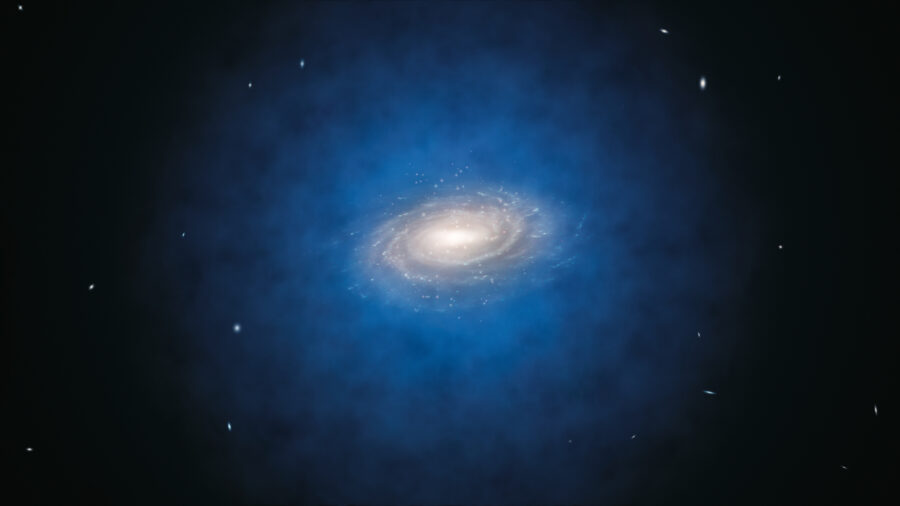Antimatter Defies Scientists Expectations And Does Something Unbelievable

In elementary school, we learned that matter is everything around us — it’s anything that has mass and occupies space. A universal law called the law of polarity states that everything in the universe has an opposite, so naturally, matter also has an opposite. It’s called antimatter, and according to ScienceAlert, scientists were shocked when they recently learned that, like regular matter, antimatter falls in gravity.
Imagine antimatter as the cosmic twin of regular matter but with a twist. For instance, the electron in matter, which is negatively charged, has a positively charged counterpart known as the positron in antimatter. It’s a bit like matter’s mirror image — when these counterparts meet, they team up to form antihydrogen atoms.
Antimatter, a once theoretical part of the world around us, stuns scientists by obeying the laws of gravity.
The universe has a fascinating habit of creating both matter and antimatter particles in equal measure. Yet, when these two cosmic characters cross paths, they annihilate each other and leave behind a dazzling burst of gamma rays. This cosmic showdown raises a captivating question: If both matter and antimatter were born during the Big Bang, why does regular matter overwhelmingly dominate our universe?
Physicists have explored various theories to explain the universe’s matter-antimatter imbalance. Some questioned the assumptions about how antimatter behaves, proposing that it might be repelled by gravity rather than attracted to it. If that’s true, then the two types of matter could have been separated billions of years ago.
Creating antimatter is a complex process, and only a minuscule amount has been produced throughout history.
The ALPHA collaboration embarked on a groundbreaking experiment to test the relationship between antimatter and gravity. Their aim was to determine whether antimatter falls under the influence of gravity, just like matter. But testing this hypothesis wasn’t an easy task.

Creating antimatter is a complex process, and only a minuscule amount has been produced throughout history. It’s both difficult and dangerous to handle and transport these fragile antiparticles. To make things even more challenging, gravity is also surprisingly feeble when compared to other cosmic forces, like electromagnetism.
But when you gather a group of incredibly smart people in a room with the mission to solve one of the universe’s biggest mysteries, anything is possible. In 2022, scientists made a thrilling breakthrough and showed that antimatter and regular matter respond to gravity in the same way.
If gravity prefers matter, that would help to explain why the universe isn’t predominantly antimatter.
This discovery came after observing both types of particles for an extended period, with no signs of gravitational differences. Taking this newfound knowledge, the ALPHA team crafted an ingenious experiment to confirm their discovery. They released antimatter particles in a cylinder resembling the “Leaning Tower of Pisa,” adjusted magnetic fields, and let gravity work its magic, providing us with captivating insights into how antimatter moves under the cosmic spell of gravity.
The results of the ALPHA experiment have ruled out the idea that gravity was responsible for separating antimatter from regular matter during the universe’s early moments. However, a fascinating possibility remains: Could gravity secretly prefer one type of matter over its antimatter counterpart? If so, this might be the key to explaining why our universe is predominantly filled with regular matter, the entire foundation of how we came to exist in the first place.












